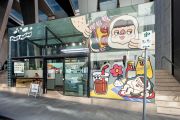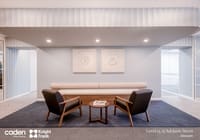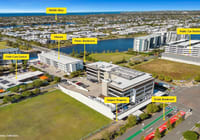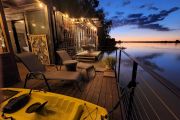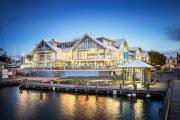
Queensland becomes the second-hottest destination for startups in the country
Queensland has become the nation’s second most popular state for startup businesses behind NSW and this is ringing in big changes in Brisbane’s office sector.
The increasing numbers of these local, interstate and even international micro-businesses flocking to the state has in turn fuelled demand for flexible workspaces, such as serviced and co-working offices, across Brisbane’s CBD and fringe suburbs, experts say.
The Colliers International Brisbane Flexible Workspace: Market Trends and Outlook report found that there was more than 78,000 square metres of flexible workspace across Brisbane in May this year.
This represented 2.43 per cent of the total office market, compared with 2 per cent of the market in Sydney.
The author of the report Helen Swanson said interstate consulting firms looking to start up in Brisbane were being lured by flexible leases and the variety of office sizes.
“From a local perspective, the latest Startup Muster Annual Report (2016) shows that Queensland has increased its share of Australian startups from 16.5 per cent in 2015 to 19.3 per cent in 2016,” she said.
This outranked Victoria, which had 18.8 per cent, while NSW had 40.9 per cent, the Startup Muster found.
Joseph Dean, national director of office leasing at Colliers International, said businesses were ”seeking greater flexibility in tenancy size, lease terms and the ability to flourish with likeminded, often tech-savvy and forward-thinking entrepreneurs and small business operators”.
“But it is not only the startups or small operators that take up the space. We see corporates and large companies also looking for alternative workspaces to grow some of their departments that can benefit from collaboration,” he said.
More than half of this office space was found in the Brisbane CBD, Mr Dean said, but co-working spaces were increasingly located throughout Fortitude Valley and southern fringe precincts, usually within secondary grade buildings.
According to the report, most the flexible workspaces in Brisbane consisted of serviced offices (62,137 square metres), with co-working space providing 8860 square metres and incubator space about 8000 square metres.
Brisbane entrepreneur and director of co-working company Little Tokyo Two, Jock Fairweather, said his business accommodated a wide range of companies in its co-working spaces in Spring Hill, Petrie Terrace, Springfield and The Capital in the Brisbane CBD.
“Recently, we have seen an influx of 30 to 35 year olds who have worked in a corporate vertical for some time and are wanting to leave and start something for themselves in the same vertical,” Mr Fairweather said.
CBRE’s associate director advisory & transactions office, James Comino, said tenants were continuing to seek increased flexibility in their office premises, which was ”helping to create more shared workspaces within buildings that offer the opportunity to expand and contract in and out easily without long-term commitments”.
“They also act as an incubator space for tenants to get comfortable within a building, often committing to larger tenancies on a direct basis with a landlord over time,” he said.
One of Australia’s largest flexible office providers, Christie Offices, has secured its newest co-working space in the Brisbane CBD, signing a 10-year lease on 3501 square metres across three podium levels in 240 Queen Street, according to CBRE.

